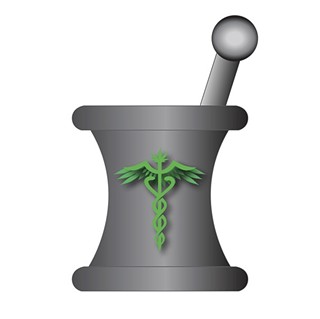Well, that sucks in all kinds of ways.
By "that," I mean state Department of Health Services Director Will Humble's decision not to add depression, migraines, post-traumatic stress disorder and generalized anxiety disorder to the list of ailments that qualify patients for MMJ cards. Humble said "no" on July 19 in a post on his blog. There isn't enough science out there, he said.
"In short—I didn't approve the petitions because of the lack of published data regarding the risks and benefits of using cannabis to treat or provide relief for the petitioned conditions," Humble wrote.
The state consulted the University of Arizona in making the decision. Doctors there took a look at available literature and advised Humble.
Now, I don't begrudge Humble. His decision makes sense, even to me, given the state of science on the matter. There are a lot of small studies out there—but many are little more than observational and anecdotal musings by physicians around the world who have tried cannabis to treat a variety of illnesses in small groups of patients. There are some bigger, experimental studies, but they're rare.
You can check with NORML or ProCon, both of which have cannabis science links on their websites, to read MMJ studies. You won't find any clinical trials from the United States among them. For a clinical trial to be accepted by the Food and Drug Administration, it has to include legal access to medication. There is no shortage of doctors wanting to study the effectiveness of MMJ against a variety of illnesses. The problem is with the legality.
Sue Sisley, a Scottsdale physician who asked the feds for permission to study the effectiveness of MMJ in treating PTSD, tried. Her study was quashed last year, even after the FDA approved the plan to treat 50 veterans with cannabis. It was nipped in the bud by the Drug Enforcement Administration, which denied her legal access to meds. (They control the only federally legal source for doctors.) No legal access, no study.
It's interesting and very frustrating that MMJ naysayers and skeptics cite a lack of science on the medical use of cannabis, but in the nation with the best medical science in the world, doctors aren't allowed to study the stuff.
It seems to me that if there isn't enough science, we should add more science—and Humble could have done that by approving MMJ use for the aforementioned conditions. True enough, adding the four rejected conditions to the Arizona MMJ list wouldn't result in the feds approving studies or clinical trials. Although doctors would then be free to study cannabis use among patients, the meds remain illegal under federal law. So the clinical, experimental science would still be hampered.
But putting cannabis in the hands of doctors and patients would deepen the pool of observational studies, which, according to Humble, "can be quite useful if they limit bias, are consistent, direct and control for confounding factors." Doctors could build up evidence—real science—and publish it, as many physicians have done in other countries. It would add heft to the "weight of evidence," which Humble called "super important" to making good policy decisions.
Medical use of cannabis is relatively new, but there is a growing body of evidence that it works. Humble fell flat when he had a chance to add to that body of evidence. So although I see why Humble rejected the petitions, I don't like the circular-logic underpinnings.
I suspect these conditions will cross the Health Services director's desk again. In fact, the state started taking petitions this week, so it might happen sooner than later.
Next time, Mr. Humble, let's bring more science to the table, not less.










